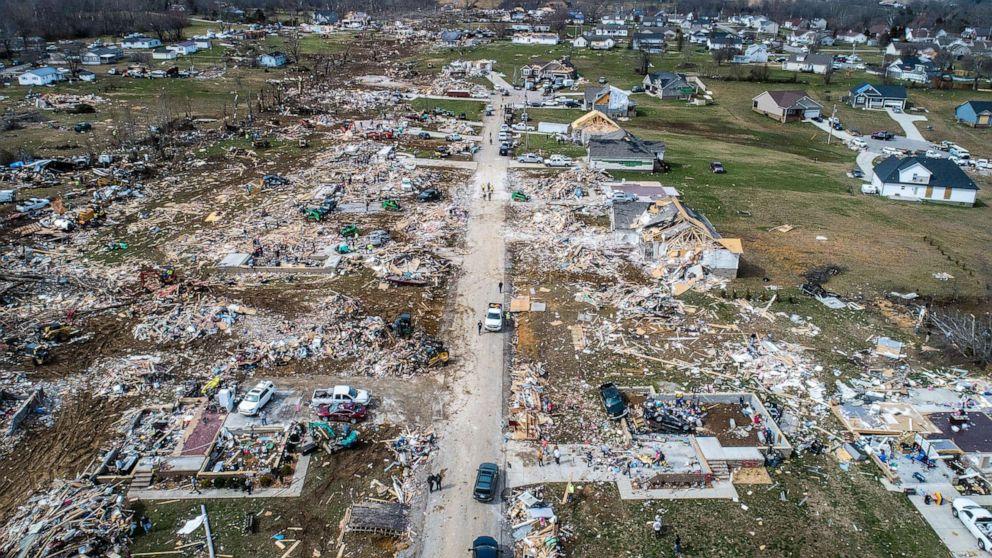Gillian Sjoblom ’23 woke up on the morning of Mar. 3 to a barrage of concerned texts from friends and loved ones asking if she and her family were okay.
A series of storms and tornadoes had descended on central Tennessee on the evening of Mar. 2, causing extensive damage to Nashville, Putnam County and the surrounding areas. The storm system caused over 70,000 people to lose power, injured 300 and killed at least 25.
Sjoblom’s family narrowly escaped disaster in their hometown of East Nashville, where the worst of the storm had hit. According to Sjoblom, her house had been the only one on the street not to be hit by the tornado.
“My neighbors, their whole roof got torn off, and two houses down, the houses are just gone,” said Sjoblom. “My best friend’s house growing up, that house is gone. My middle school and my elementary school were both destroyed.”
“A lot of places I like to frequent back home are destroyed,” said Felix Jordan ’22, who is also from Nashville. “My close friend … almost lost his childhood home.”
The Nashville community has rallied together to help those most affected by the storms.
Sjoblom’s parents have temporarily taken in unhoused neighbors and a foreign exchange student who was previously living with her mother’s friend.
“I think that technically [the government] has been doing [humanitarian efforts], but what the government is doing is really nothing compared to the community organizing,” said Sjoblom. “A lot of local businesses are donating food, and churches are hosting places for newly homeless people to live, [as well as] having kitchens and stuff open.”
The tornadoes have been among the worst in Tennessee’s history. A similar series of tornadoes in 1998 and flooding in 2010 had also hit parts of the city, but, according to Sjoblom, nothing had been as bad as this.
“I’m surprised how [little coverage] this has [gotten] since the death toll has been like almost 30 now. It’s like a whole section of my town that’s been completely destroyed,” said Sjoblom.
According to NewsChannel5 Nashville, damages to an apartment complex in Germantown, one of Nashville’s historic districts, were so extensive that residents were given eviction notices and told the building would be demolished.
Sjoblom worries about what this means for gentrification in the city.
“It’s a historically poor black community that’s been hit,” said Sjoblom. “It means a lot more for the Nashville community because it was the most historic part of the town, the poorest part of the town, the most racially diverse part of the town, and it’s probably going to be rebuilt into a rich white part of town.”
1,000 miles away in Wellesley, students with family in the area have expressed feeling frustration and guilt that they cannot help with relief efforts.
Sjoblom plans to travel back home over spring break and assist with the cleanup effort.
“There’s still going to be a cleanup effort over two weeks [later] because [the damage has been] really bad,” said Sjoblom.






